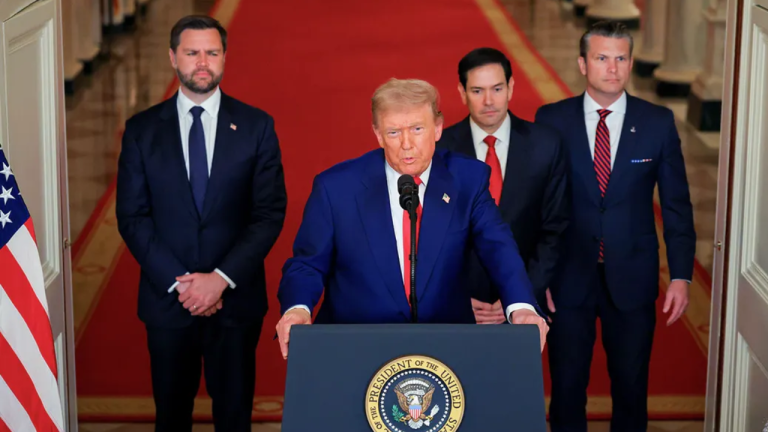Flying Taxis Are Making Their Debut | Toyota’s Flying Car Completes First Test Flight!
Some of us might have fallen in love with those flying cars from all those Hanna Barbara cartoons. But we are just getting there now. With their ground-based sales falling, auto giant Toyota has teamed up with US-based Joby Aviation to develop air taxis. As you might probably know Joby is a leader in electric Vertical Take-Off and Landing (e-VTOL) technology. Toyota has invested to the tune of half a billion dollars in this new venture. In 2020, Toyota also invested in a start-up to develop SkyDrive, a similar flying car. With all these developments, nightmarish traffic congestion and frustrated evenings may probably become a thing of the past. Let’s look at how this automobile giant is navigating a new frontier.
Toyota’s Strategic Investment in Joby Aviation Flying Cars
In 2020, Toyota made its first major investment in Joby Aviation with $394 million. Since then, the automaker has further invested in Joby, bringing the total commitment to $500 million. Joby can benefit from Toyota’s deep manufacturing experience, which will be key to scaling the production of its eVTOL aircraft for mass commercial use.

Joe Ben Bevirt, the founder and CEO of Joby Aviation, emphasized the importance of Toyota’s involvement. He stated, “Today’s investment builds on nearly seven years of collaboration between our companies,” The knowledge and support shared by Toyota have been instrumental in Joby’s success and we look forward to deepening our relationship as we deliver on our shared vision for the future of air travel.”
Today’s investment builds on nearly seven years of collaboration between our companies
Joe Ben Bevirt
The Joby Aircraft: Designed for Urban Mobility
The Joby S4 is the flying car at the center of the partnership. This all-electric eVTOL aircraft can carry up to five passengers, including the pilot. It boasts impressive specifications, such as a 200 mph top speed. And a 150-mile range on a single charge. This makes it a viable alternative to traditional ground-based transportation.

One of the standout features of the Joby aircraft is its low noise levels. With a noise level of under 65 decibels, the aircraft is much quieter than conventional helicopters. This quiet operation is essential for urban environments, where noise pollution is a major concern.
Bevirt further commented on the aircraft’s design the following. “Our aircraft are designed with urban air mobility in mind, providing a quiet, sustainable, and efficient mode of transport.”
Toyota’s Manufacturing Expertise
Joby’s collaboration with Toyota goes beyond financial investment. Toyota has provided critical assistance in jacking up Joby’s manufacturing process. The Japanese automaker’s vast experience in mass production systems is helping Joby to design and build efficient manufacturing facilities. This collaboration is vital as Joby plans to ramp up production to meet demand in the coming years. Toyota engineers now work side-by-side with Joby staff in California.

Akio Toyoda, Toyota’s president, explained the role of Toyota’s vision in the partnership, saying, “It takes four to five hours to drive here from Tokyo, but flying would take just 25 minutes, This will change people’s lifestyles.”
Joby’s production facility in California is expected to ramp up manufacturing in the coming years. Hopefully, they can make the first commercial air taxis slated to be available by 2025. Other than that, the project is also crucial to Toyota’s goal of achieving carbon neutrality by 2050.
“It takes four to five hours to drive here from Tokyo, but flying would take just 25 minutes, This will change people’s lifestyles.”
Akio Toyoda
Joby’s Test Flights and Certification of Flying Cars
As Joby moves closer to launching its commercial air taxi service. In 2021, Joby became the first eVTOL company to receive the G-1 certification from the Federal Aviation Administration (FAA), a crucial milestone in the path toward commercial operations. Joby already has a partnership with the UAE through a memorandum of understanding with the Department of Municipalities and Transport Abu Dhabi. This sets Joby up to establish and scale flying taxi services in Abu Dhabi and beyond.
In 2023, Joby unveiled its first production prototype, which was designed to undergo final testing and certification. The aircraft has demonstrated the ability to complete vertical takeoffs and landings, as well as sustained horizontal flight, proving the viability of eVTOL technology. Joby has raised more than $2 billion from Toyota, Delta Air Lines, SK Telecom, and Uber. According to the company, it has logged more than 33,00 miles of flight with a full-scale prototype,
The Role of SkyDrive in Toyota’s Flying Car Efforts
While Joby represents Toyota’s primary partner in the flying car initiative, Toyota has also been involved with SkyDrive, a Japanese startup focused on flying cars. In 2020, SkyDrive conducted Japan’s first public flight of a single-seat eVTOL aircraft, the SD-03, a small aircraft designed for short trips. This early experiment was another stepping stone for Toyota in its quest to build flying cars.
Although SkyDrive’s focus was initially on personal flying vehicles, the partnership between Toyota and SkyDrive helped push forward the broader concept of urban air mobility. The SD-03 demonstrated Toyota’s continued commitment to exploring new technologies in the field of aviation. SkyDrive’s plans include developing a two-seater aircraft with commercial applications.
The Future of Flying Cars
Looking ahead, Toyota and Joby aim to make flying taxis a practical reality for commuters in major urban centers. The potential for air taxis to alleviate traffic congestion and reduce emissions is huge, and both companies are committed to addressing the challenges that come with this new technology. The 2030s could see urban air mobility becoming an integral part of daily life, transforming the way people move around cities.
In terms of regulatory approval, the FAA and other aviation authorities will play a critical role in ensuring the safety of eVTOL aircraft. However, both Toyota and Joby are confident that the technology will meet safety and operational standards.
The commercial launch of Joby’s air taxis is expected to be limited to specific markets initially, with plans to expand as production scales and regulatory hurdles are cleared. Toyota’s investment and expertise will help drive this process forward, positioning the company as a leader in the next wave of transportation innovation.
Conclusion
The collaboration between Toyota and Joby Aviation is set to reshape the future of urban mobility. With Joby’s innovative aircraft and Toyota’s deep manufacturing expertise, flying cars could soon become an everyday mode of transport. Although challenges remain in scaling production and gaining regulatory approval, the partnership is making significant strides toward the realization of this once-distant dream.
Also Read:
YouTuber Smokes Her Dad?! Rosanna Pansino’s Shocking Tribute Will Leave You Speechless
Bye-Bye, Canada: The North Pole Just Packed Its Bags for Russia







